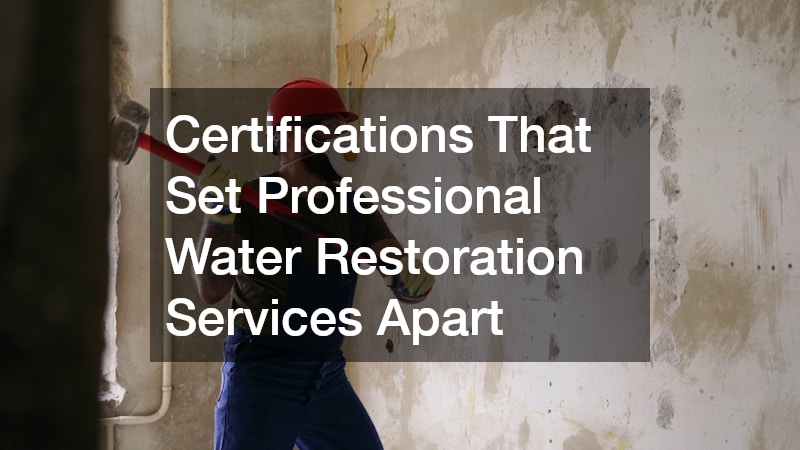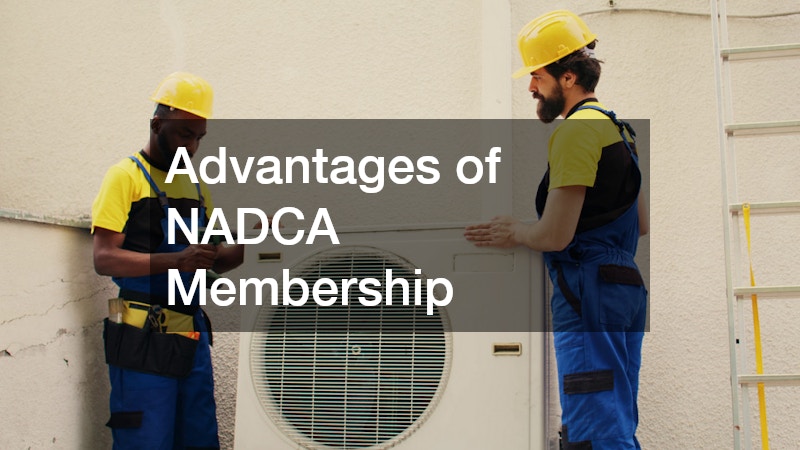
Certifications That Set Professional Water Restoration Services Apart
Water damage can wreak havoc on homes and businesses, leading to costly repairs and potential health issues if not addressed properly. While many companies offer water restoration services, not all are created equal. Certifications play a crucial role in determining the expertise and reliability of these services.
This article explores the certifications that distinguish professional water restoration services from the rest of the pack. By understanding these credentials, clients can make informed decisions when choosing a provider and ensure the best possible outcome for their water damage issues.
The Importance of IICRC Certification
The Institute of Inspection, Cleaning and Restoration Certification (IICRC) is an internationally recognized organization that sets standards for water restoration services. IICRC certification assures clients that the technicians have undergone rigorous training and have met industry standards. Professionals bearing this certification are well-versed in the latest techniques and technologies, ensuring more effective restoration processes. Moreover, IICRC-certified technicians must continuously update their skills with ongoing education, meaning they are up-to-date on the best practices and innovations. Choosing a water restoration service with IICRC certification offers homeowners peace of mind knowing their property is in capable hands.
Water restoration is a complex process involving many variables, making certification vital for ensuring quality service. IICRC-certified technicians are taught to handle all types of water damage, from minor leaks to significant flooding events. This comprehensive training allows them to accurately assess damage, provide reliable estimates, and perform necessary restorations efficiently. Additionally, IICRC certification demonstrates a commitment to superior customer service and industry excellence. It’s a mark of credibility that helps set apart professional water restoration services from less qualified competitors.
Value of EPA Lead-Safe Certification
The Environmental Protection Agency (EPA) offers the Lead-Safe Certification, another key credential for water restoration services. When homes and businesses experience water damage, materials like paint and drywall may become exposed or disrupted. If these materials are old, there’s a chance they contain lead, which poses significant health risks, especially to children. An EPA Lead-Safe Certified company understands how to manage such situations safely, ensuring any lead hazards are properly dealt with during restoration. This certification is particularly important for properties built before 1978, when lead-based paint was commonly used.
Companies with EPA Lead-Safe Certification are trained to minimize lead dust exposure during restoration, protecting the health of occupants and workers alike. Technicians in these companies are proficient in employing lead-safe work practices in compliance with federal guidelines. When engaging water restoration services, clients should look for this certification to ensure that potential lead exposure is effectively managed. Moreover, the certification highlights the company’s dedication to maintaining safe work environments and performing high-quality restorations.
Lead exposure is a serious concern that can result in long-term health effects, emphasizing the importance of this certification. By hiring a water restoration service with EPA Lead-Safe Certification, clients reduce the risk of inadvertently causing harm while addressing water damage issues. The credentials demonstrate the company’s capability to handle complicated restoration scenarios responsibly. In addition to ensuring thorough and safe remediation, these certified professionals also educate clients on proper maintenance and prevention strategies.
Advantages of NADCA Membership
The National Air Duct Cleaners Association (NADCA) membership is another certification that can enhance the reputation of water restoration services. Water damage can compromise a building’s air quality by introducing mold and other contaminants into the HVAC system. NADCA membership signifies that a company is proficient in cleaning and maintaining air duct systems, an essential aspect of comprehensive water restoration. This certification indicates that the company’s technicians are knowledgeable about industry-leading techniques for cleaning ducts and improving indoor air quality. As a result, clients can be assured that every facet of their water damage issue is addressed.
When HVAC systems are affected by water damage, they can inadvertently circulate pollutants throughout the property if not properly treated. NADCA-certified companies are equipped to prevent such occurrences, further enhancing their restoration services’ effectiveness. This certification means the service provider is attuned to the various factors impacting indoor environments following water damage. As NADCA members, these companies commit to following strict standards and best practices, ensuring comprehensive and efficient restoration.
Alongside addressing immediate water damage, NADCA-certified professionals add value by aiming for improved indoor air quality. This focus proves invaluable, as poor air quality poses long-term health risks that may otherwise go unnoticed. As part of their service, NADCA members can offer advice and recommendations on air maintenance, contributing to better living conditions. Their expertise helps prevent further moisture and contaminant issues from compromising the air quality and occupants’ health.


